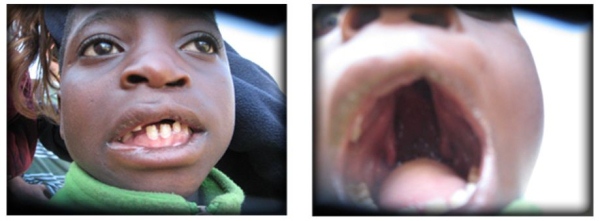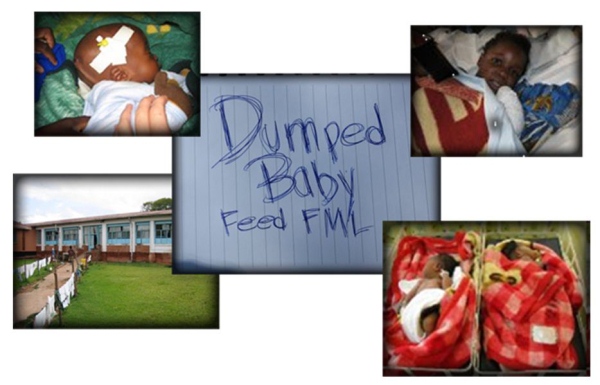Pediatric Therapy Corner: Voice for the Voiceless – Experience in Zambia
By: Sandra Carroll & Chrysty Sturdivant
Co-Founders of Neonatal Therapy Solutions
Last summer, we traveled to Zambia, Africa for a medical mission. Of course, it was life changing, and the specific ways our lives were changed continues to be revealed. We wanted to share a fraction of our experience and provide some information about the organization that we were aligned with in order to make this part of our life’s story.
Zambia is the size of Texas with a population of almost 10 million people. According to the 2000 census of Population and Housing, out of the 9.3 million Zambians included in the census, 256,690 are disabled which equates to 2.7 percent of the population. Two fifths of the disabled persons have never attended school and another two fifths have only completed primary education. The proportion of those who have never attended school is highest among the hearing and speech impaired. (www.zamstats.gov.zm)
A limited number of professionals in Zambia are trained to meet the special needs of those living with disabilities. There are NO speech pathologists in the country, one occupational therapist, and one physical therapist. Yet, in a country of 10 million people, there is obviously a need for many, many more. Lack of educational programs, poverty and cultural believes are the main reasons therapists are not present in this country.
C.L.A.S.P. (Connective Link Among Special needs Programs) International is a 501(c)3 non-profit organization that allows rehabilitation professionals to go into countries where developmental and rehabilitative care for individuals with special needs is not practiced and provide training to the natives of that country. The mission is to provide self-sustaining programming that allows each country to pass along training to future professionals working with special needs populations.
Since the need is quite overwhelming to tackle the problem of lacking OT, PT, SLP professionals/programs, it was necessary to start in one place and then move forward from there. C.L.A.S.P. chose to begin with speech/language pathology. And through a large amount of love, work and outside support, C.L.A.S.P members were able to design, implement and start the first SLP program at the University of Zambia (UNZA). The first 21 students began their master’s level training this past summer! In two years, there will be professionals able to treat those in need!
It would require a book to describe all of the challenges that were confronted in getting this program up and running. But we would like to share some stories of the experiences in Zambia. It is our intention of this article to bring awareness to the need of rehabilitation professionals to be involved in medical mission work. It is not hard to find service-oriented organizations in which medical services are needed. But quite often, the need is for professionals with nursing, medical doctor, or physician assistant degrees. It is rare that an organization is dedicated to providing self-sustaining THERAPY services only.
Read on. We hope you will be inspired to seek out an organization like this. If you find that you are interested in C.L.A.S.P. International, please visit the website: claspinternational.org.
In Zambia, children with disabilities of any kind are considered a “curse.” Even though it is illegal to place babies with cleft lips/palates or other deformities in the toilets, it happens frequently. These children are also burned, used for sacrificial purposes or just neglected. Often the choice is to not feed these babies and wait until the baby is starved to death, claiming that the child failed to thrive.
Children with cleft lip/palate often die before reaching school age. Here is one example: Douglas was an infant when a team of surgeons visited Lusaka on a short-term mission trip. Douglas was born with a cleft palate and a cleft lip. When he was born Douglas’ mother was told that her child “was cursed by the witchdoctor.” Although Douglas’ mother chose to keep Douglas, he received no follow up monitoring or repair. Douglas was discovered as he was just wondering the streets. While eating, food was noted to come out of his nose due to the lack of closure.

C.L.A.S.P. developed a special clinic for children with cleft lip/palate. Children and their parents travel from all over the country (many times on foot, or with many days of travel to arrive in Lusaka). They are able to receive several intensive days of speech language pathology services provided by the C.L.A.S.P. team in order to teach the parents to carry out activities at home to promote safe feeding/eating, oral motor skills, phonation, etc. They stay on-site at a small “school” that donates the space for the children and their families. The families who are able to attend find comfort in knowing that there are others just like them. They also receive psychological support from each other and the C.L.A.S.P. team in order to dispel the myth of being “cursed”.
Infants born prematurely or with a disability are among those who need a voice to speak on their behalf. The Neonatal Intensive Care Unit at a local Zambian hospital offers a place for premature infants and infants born with special needs a place to receive medical attention, however there are limited resources available to provide developmentally supportive care. Due to the lack of resources many of the infants are required to breathe on their own and take feedings by mouth before it is developmentally and medically appropriate. These infants are often discharged quickly from the hospital due to a shortage of beds. Follow up care related to medical needs as well as developmental needs is non-existent.
C.L.A.S.P. sent a team of neonatal therapy experts into the NICU at the University Teaching Hospital. In addition to the hands-on care that the team was able to provide, there were several hours providing specific education to the hospital staff involved in their care. The Zambians were eager to learn and put newly learned skills in action when dealing with this vulnerable population, despite the overwhelming challenges they face in providing basic care.

On the grounds of the government hospital lies a “Speech and Hearing Clinic” with no speech-language pathologist and limited equipment to identify and aid hearing loss. In observing an audiological evaluation, the inconsistent ability for the audiometer to work provided limited opportunity for the child’s hearing loss to be accurately depicted. As a result, a cowbell was rung behind the child. When the child gave no response, he was then diagnosed as deaf.
C.L.A.S.P. provided one audiologist, who brought her own testing equipment to perform quality hearing evaluations in a clinic-style setting. Appropriate parent education, as well as a limited number of hearing aids were supplied to these children – quite possibly changing their lives forever.
Here is an example of the children encountered: Chamba’s mother was deemed to be a witchdoctor. While in an argument with Chamba’s father, her mother “put a curse” on Chamba to punish her father by spraying rodent killer in her ear. She was left with an ear infection for 3 years and now has partial hearing due to this incident.
Unfortunately, these stories are just a few out of thousands. Hopefully, as a reader, you have been able to get a glimpse into the world of therapy in the country of Zambia. And we know that you are obviously able to see the immense need this country has for services that you perform on a daily basis. Think about the children you serve on a daily basis and imagine what their life might be without your care. Then, consider making a medical mission part of YOUR story.
This Month’s Featured Authors: Sandra Carroll, OTR/l, CIMI and Chrysty Sturdivant, OTR/L
Neonatal Therapy Solutions was created to guide neonatal therapists and other healthcare professionals to become excellent clinicians in the NICU. The company offers flexible education packages and consulting services for the NICU. In addition, personalized mentorship programs can be custom designed for individuals or groups.
Sandra Carroll and Chrysty Sturdivant, co-founders of Neonatal Therapy Solutions, are both occupational therapists who specialize providing services in the NICU. Together, they have 50 years of experience in treatment and intervention of high risk infants/families. Sandra and Chrysty are nationally recognized speakers, educators and mentors. Their dedication and passion for the advancement of neonatal therapy is exemplary.
PediaStaff is Hiring!
All JobsPediaStaff hires pediatric and school-based professionals nationwide for contract assignments of 2 to 12 months. We also help clinics, hospitals, schools, and home health agencies to find and hire these professionals directly. We work with Speech-Language Pathologists, Occupational and Physical Therapists, School Psychologists, and others in pediatric therapy and education.
